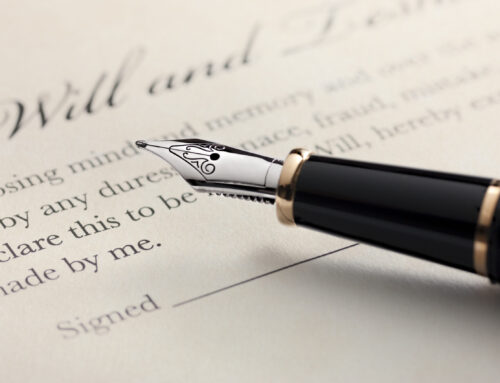Putting in place a power of attorney can make sure that you’re protected so that in future years when you are unable to make decisions yourself, someone on your behalf can do so. But understanding what power of attorney is and why it is so important, can be hard to get your head around. From setting it up, to questioning if you need a solicitor, we’ve got everything you need to know.
Here’s our easy guide on power of attorney…
What Is Power Of Attorney?
Power of attorney (PoA) is a legal document that means that someone can make decisions for you on your behalf when you are unable to do so yourself. This can involve both long term and short term plans, including being diagnosed by dementia or Alzheimer’s disease to being in the hospital for a short period of time.
It is about giving someone the power to make decisions for you, in case in the future you don’t have the mental capacity to do so. The process can only be done when you currently have mental capacity and are able to make decisions for yourself so it is best to put it in place early.
What Are The Different Types of PoA?
There are currently three main types of power of attorney, which are ordinary power of attorney, lasting power of attorney (LPA) and enduring power of attorney (EPA).
An ordinary power of attorney is often the temporary PoA, when you need it for the short term, like being in the hospital and you need someone to act for you. Due to this, it is valid when you still have mental capacity.
An LPA covers financial, care and your overall health and comes into force once you lose mental capacity. This can help you to be covered in the future. This can sometimes be separated between personal welfare LPA, and property and financial LPA. The personal welfare LPA is all about making decisions about your routine including whether you should be living in a care home, and medical treatments. Whereas the property and financial LPA allows your PoA to make decisions about your money, such as managing the bills.
An EPA is the older version of an LPA, so if you’ve signed an EPA before 1st October 2007, it will still be valid. This is similar to LPA, as it covers property and financial affairs as soon as you lose mental capacity.
How Do You Set Up A PoA?
It isn’t necessary to hire a solicitor to help you create and set up a power of attorney, however it can definitely make it a lot easier. A solicitor can complete the form for you and answer any questions or concerns you may have about the PoA. It also means that there will be a prevention of any problems in the future which can give you peace of mind.
We can help you here at Beeston Shenton Solicitors to set up your lasting power of attorney, helping you to fill out the forms, making sure it’s signed by a certificate provider and that it is registered with the Office of the Public Guardian. If you need any help at all, get in touch with our expert team today…




